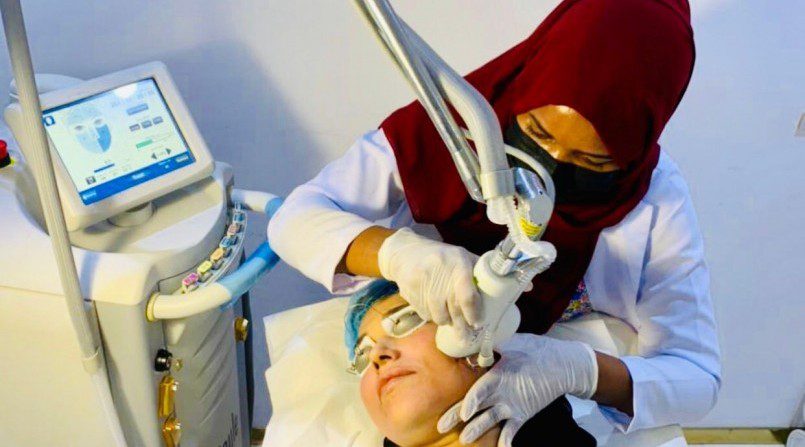Everything You Need to Know About Gum Abscesses

Gum abscesses, while relatively common, can be painful and worrying if left untreated. Understanding what they are, their symptoms, causes, treatment options, and prevention methods is crucial for maintaining good oral health. In this comprehensive guide, we delve into everything you need to know about gum abscesses to help you stay informed and take proactive steps to address them effectively.
What is a Gum Abscess?
A gum abscess, also known as a periodontal abscess, is a localized collection of pus within the gum tissues. It typically occurs as a result of a bacterial infection, often stemming from untreated gum disease or dental decay. The buildup of bacteria leads to inflammation, which can cause the formation of a pocket of pus within the gums.
Symptoms of Gum Abscess:
The symptoms of a gum abscess can vary depending on the severity of the infection, but common signs include:
• Severe and persistent toothache
• Swelling of the gums
• Redness and tenderness in the affected area
• Pus discharge
• Bad breath or a foul taste in the mouth
• Difficulty chewing or biting
If you experience any of these symptoms, it’s essential to seek prompt dental attention to prevent the infection from worsening.
What does a periodontal abscess look like?
A periodontal abscess typically appears as a swollen, red bump on the gums. It may be accompanied by pus discharge, which can give it a white or yellowish appearance. In some cases, the abscess may be visible as a small, raised bump near the affected tooth.
What causes a gum abscess?
Gum abscesses are primarily caused by bacterial infections that infiltrate the gum tissues. These infections often arise from poor oral hygiene practices, such as infrequent brushing and flossing, which allow plaque and bacteria to accumulate along the gumline. Additionally, factors such as gum disease, dental trauma, and underlying health conditions can increase the risk of developing a gum abscess.
Types of gum abscess: There are two primary types of gum abscesses:
1. Gingival Abscess: This type of abscess affects the surface gum tissues and is often caused by trapped food particles or foreign objects irritating the gums.
2. Periodontal Abscess: A periodontal abscess affects the deeper gum tissues and is usually associated with advanced gum disease or dental infections that extend into the supporting bone structures.
Gum abscess treatment options:
Treatment for a gum abscess typically involves addressing the underlying infection and relieving symptoms. Common treatment options for a gum abscess may include:
• Drainage of the abscess to remove pus buildup
• Antibiotic therapy to eliminate bacterial infection
• Root canal therapy or tooth extraction if the abscess is associated with dental decay or tooth infection
• Scaling and root planing to remove plaque and tartar buildup from the teeth and gums
• Pain management measures to alleviate discomfort and swelling
The specific treatment approach will depend on the severity of the abscess and the individual’s overall oral health.
What are the risk factors for a gum abscess?
Several factors can increase the risk of developing a gum abscess, including:
• Poor oral hygiene habits
• Untreated gum disease
• Dental trauma or injury
• Weakened immune system
• Smoking or tobacco use
• Diabetes or other systemic health conditions
It’s essential to address these risk factors and maintain good oral hygiene to reduce the likelihood of developing gum abscesses.
Prevention of Gum Abscess:
Preventing gum abscesses involves practicing good oral hygiene habits and taking proactive steps to maintain optimal dental health. Key prevention strategies include:
- Brushing your teeth at least twice a day with fluoride toothpaste.
- Flossing daily to remove plaque and food debris from between the teeth.
- Using an antiseptic mouthwash to reduce bacterial growth.
- Avoiding tobacco products and limiting sugary foods and beverages.
- Visiting your dentist regularly for professional cleanings and check-ups.
- By adopting these preventive measures, you can help protect your gums from infection and reduce the risk of developing gum abscesses.
Conclusion:
Gum abscesses can cause significant discomfort and complications if left untreated, highlighting the importance of proactive dental care and prompt treatment. By understanding the causes, symptoms, treatment options, and prevention strategies associated with gum abscesses, individuals can take proactive steps to maintain good oral health and minimize the risk of oral infections.
Gum Abscess: FAQs
Will a periodontal abscess go away?
A periodontal abscess will not resolve on its own and typically requires dental treatment to eliminate the infection and prevent further complications.
How urgent is a periodontal abscess?
A periodontal abscess should be treated as soon as possible to prevent the infection from spreading and causing additional damage to the gums and surrounding teeth.
Is periodontal abscess contagious?
While the bacteria that cause periodontal abscesses can be transmitted through saliva, the abscess itself is not considered contagious in the same way as a viral infection. However, practicing good oral hygiene can help reduce the risk of spreading bacterial infections to others.
Can I treat a periodontal abscess at home?
While home remedies may provide temporary relief from symptoms, it’s essential to seek professional dental care for proper diagnosis and treatment of a periodontal abscess. Home treatment alone is unlikely to resolve the underlying infection and may lead to complications if not addressed promptly.
In conclusion, understanding the causes, symptoms, treatment options, and prevention strategies associated with gum abscesses is essential for maintaining good oral health and preventing complications. By prioritizing oral hygiene and seeking timely dental care, individuals can effectively manage gum abscesses and reduce the risk of oral infections. Our highly trained and qualified team of dental experts at The Clinic SKIN111 can provide full assistance and suitable treatments.
If you are facing gum abscesses, contact the Skin111 clinic in Dubai for comprehensive dental care solutions, including Zoom teeth whitening, dental implants, dental veneers, and more. Book your appointment today to address all your dental needs.
Most Popular:
-

Sciton HALO vs Sciton BBL
Read More »September 20, 2022 -

What is profhilo, and how is it different from fillers?
Read More »September 20, 2022 -

Body contour solutions from SKIN111
Read More »September 20, 2022 -

Does IV GLUTATHIONE therapy work
Read More »September 20, 2022 -

How can an IV drip help you boost your energy
Read More »September 20, 2022